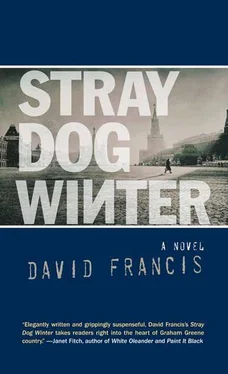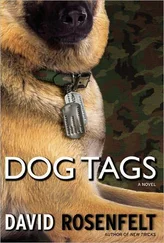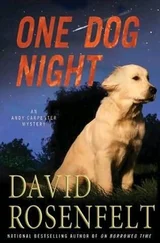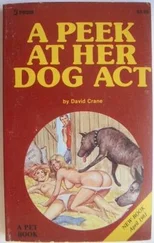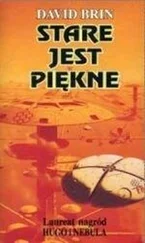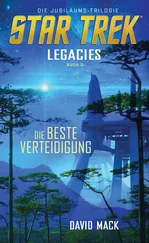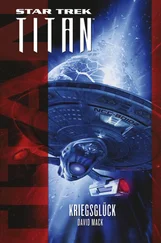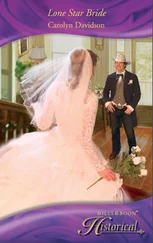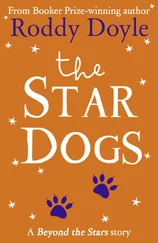It’s more interesting than what you do, she said, taking a first toke and then coughing. At least it says something. She passed the joint to Darcy and he took a hit, his chest pumping in as he held it, sputtering.
They had no idea what you were talking about.
Then it must be art, she said.
Darcy puffed again, resenting how she made his work feel dated, painted . He closed his eyes at the Chadstone lights and waited for the first hint of a buzz. And then they were silent, Fin already in her Fin world.
At Caulfield, they turned underneath the railway bridge and all became more vivid, the glare of the headlights along Balaclava Road, cutting across to St Kilda. The distant beat in Caulfield Park where he’d have stopped if he were on his own, the observant Jews at Orrong Road, on foot because it was Friday night, men in black hats, the women frumpy. Dad doesn’t live so far from here, said Darcy.
Fin took another pull on her blunt as they passed a tram that screeched on its cables. Do you ever see him? she asked.
Not lately, he said. His girlfriend’s nice, though. She’s Israeli. He wanted to tell her how his mother was what she called circling the drain , that he had her car because she barely left the house, the Austin getting her back and forth to the drive-thru bottle shop in Frankston. What happened to Aunt Merran? he asked.
Fin took another puff, swallowed then exhaled. I saw her once, she said. In California. She was still in the house outside Montecito. She had a blind ram in the garden. It walked in circles with its head up in the air, sniffing towards her when she called it. It had holes for eyes.
Does she drink too? he asked.
She did that day.
They arrived outside Darcy’s flat on Robe Street and parked. He hadn’t told her he paid the rent from his grandmother’s money, the small inheritance Fin never saw. He showed her his studio in the closed-in end of the balcony. His own exaggerated realism: the four of them on easels, like he had a gallery at home. The curved brick walls and the signs of the buildings. Wheelan the Wrecker and Berrigan’s Foundry, streetlights and old Holden cars, a Falcon ute parked in the shadow of a railway bridge, everything slightly larger than life.
They’re really good, she said. She picked up an envelope of the photos he’d taken of them, sets of pictures ready in envelopes with his resume, some shots of his portraits and pastels.
I’m applying for graduate art programs, he said.
Can I take a copy of these? she asked.
Darcy nodded, flattered. Sure. She put the envelope in her satchel. Your thing was good too, he said. I didn’t mean to make fun of it.
It was kind of stupid in the end, she said. She went to his bathroom and washed off her white and black make-up, put on her red lipstick, and together they walked up Acland Street, Fin still in her cape and boots. They headed to Pokey’s up near the corner, caught the end of the show, a part-Aboriginal drag queen singing ‘Nutbush City Limits’. Darcy was high from the dope and for once he felt happy. The music was loud and the dance floor opened, Fin in her own little groove with her cape and her satchel, her hands in the air to the Eurythmics’ ‘Sweet Dreams’, doing her Annie Lennox thing.
Darcy ordered a Bundy and Coke from the shirtless tattooed boy at the bar, the older men cruising, the glare in their eyes and the tips left wet on the bar. Darcy leaned there and listened to the Human League, tasted the liquor and thought of his mother as the rum touched his tongue, and vowed, as usual, that this was his last for the night.
He drank and then danced with Fin to the Thompson Twins, in a rhythm like they belonged together. If he were alone he’d go down to the beat near the beach, lose himself there on the weed and the Bundy, where no one said anything, but now he had Fin and he held her narrow waist as they bumped on each other on the crowded dance floor like no one else existed. He felt sexy in his tight Fioruccis, his narrow black boots as they slithered on the slick parquet. He circled on his own and looked up at the lights as they dazzled, mused about art school in Sydney, the night-life up there, but when he came back to the present Fin had disappeared. He went to the ladies room and shouted, looked around the club but there was no one he’d take home. With a good buzz on, he took another drink to go, for out where he knew the night would take him, to the paths along the banks of the Yarra, waiting under the Anderson Street bridge or in the bushes, to find someone to remember and forget.
Ulitsa Kazakov
Thursday evening
It was already 7 pm when Darcy stood slender and pale in his boxers, reflected in the shadow-stained bathroom mirror. He stared at the black and white remnants of the photo from Prague floating in the toilet bowl, torn up by Fin and left here for him to pee on. But Fin wasn’t here now. Darcy flushed and some pieces were swallowed, but part of his face just swirled and remained: a tight-closed eye, and the top of the soldier’s burnt-sugar hair. His army cap indelibly placed on the rusted cistern, out of the way, as he’d lowered himself on that piss-stained cement. A second swirl of water and all was gone. Darcy’d been set up; he knew that now. The soldier was one of those agent provocateurs . He’d been set up in Prague and now by Aurelio, everyone part of something, Fin as well, except Fin and he had ignited a new secret of their own. All he did was kiss her on the back; why did she turn around?
Behind the bathroom towels, Fin had stowed her potato vodka from Poland, a gift, he assumed, from Jobik. Darcy sensed she’d kept it hidden because he’d sworn off it before she’d left Melbourne in September. He’d barely painted since. She told him he didn’t need to become any more like his mother, but now the voice in his head said: too many feelings to cope with on your own, come with me, my sweet potato?
The vodka seared a hollow in his delicate throat and it made his breath feel loud inside him, flooding his veins, liquid distilled from lava, a tasteless taste that usually brought tears as he walked with the bottle into the hot other room where the canvas sat sketched without colour on the easel. In the dog’s red wax eyes Darcy sought all kinds of forgiveness, for his mother and father, the Mormon, the soldier, and he searched in its eyes for himself, asked how he should paint this, the charcoal in his newly warmed fingers. He had the pavilions, the fountain, he had what they wanted, the obelisk mounted with the shape of the dog, the only colour so far in those red torch-lit eyes. He remembered Laika as famous, launched in that rocket, but did she ever come back?
Darcy picked up the waxen puddle of the cinnamon candle from last night. He’d paint it for penance, not just for himself, he’d paint it in wax with the stash of Fin’s candles. He pulled her collection from the drawer of the end table, red and cream and yellow, a royal blue, the paraffin scaly and rough in his fingers as he laid them out like paints on the ironing board. He covered the ironing board roughly with pages of Izvestia , newspaper photos of Andropov living and dead, and laid Fin’s cheap oils and Russian watercolours alongside the candles. Melted wax and paint, it would be naïve and primitive, all he needed was heat.
The travelling iron sat on the board like an invitation. Its plastic handle folded into its shell, and he lay it on its back like a silver beetle, a miniature hotplate. Another swig and a burn in his pharynx that rushed to his ears and it made him feel too close to his mother, snapping candles, ripping at wicks and pushing their nubs into the iron’s heat. He grabbed a teardrop knife from Fin’s paintbox, Fin who he wished hadn’t turned around. He kneaded the molten wax with the blade, conjured the boy in the square and his juggling, but the vodka had eclipsed that, so he turned to the dog on the canvas.
Читать дальше
